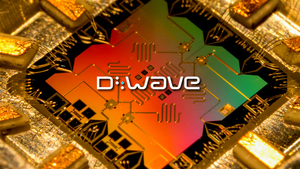
New York, NY – November 24, 2025 – The technology sector delivered an exceptional performance in the S&P 500 today, leading a broad market rally and injecting a strong dose of investor optimism into a holiday-shortened trading week. All three major U.S. stock indexes surged significantly, propelled by a potent combination of groundbreaking advancements in artificial intelligence (AI), robust corporate earnings, and escalating expectations for a Federal Reserve interest rate cut in December. This powerful confluence of factors underscored the tech sector's enduring role as a primary engine of market growth, signaling a renewed appetite for innovation and a potentially more accommodative monetary policy environment.
Detailed Coverage: A Day of Tech-Driven Ascendance
The market's upward trajectory began with the opening bell, as U.S. stock indexes moved sharply higher, marking a decisive rebound after a period of volatility in tech stocks. The tech-heavy Nasdaq 100 surged by over 2.01%, while the broader S&P 500 Index climbed by +1.21%. The Nasdaq Composite also saw a significant rise of 0.93%, and even the Dow Jones Industrial Average posted gains, up by +0.58%. By the afternoon, the S&P 500 was up 1.58%, the Nasdaq maintained its impressive 2.62% jump, and the Dow held a modest 0.62% gain. The technology sector led from the outset, finishing the midsession up 2.5%, with communication services closely following with a 3.6% rise. This positive sentiment resonated globally, with Asian indices and Indian bourses also registering gains, particularly in IT stocks.
Several key players were instrumental in driving this rally. Alphabet (NASDAQ: GOOGL), the parent company of Google, saw its shares jump over 5%, reaching an all-time high and nearing a staggering $4 trillion valuation. This surge was primarily fueled by the recent launch of its advanced Gemini 3 AI model, which has reportedly surpassed OpenAI's GPT-5 in intelligence, and a substantial multi-million dollar cloud infrastructure contract secured with the NATO Communication and Information Agency (NCIA). This re-established Alphabet's formidable position in the intensifying AI race.
Tesla (NASDAQ: TSLA) also experienced a significant boost, with its stock popping over 7%, making it one of the top performers in the S&P 500. This came after CEO Elon Musk's social media announcement over the weekend regarding the company's ambitious plans to build more AI chips than all others combined. Furthermore, Nvidia (NASDAQ: NVDA), a critical bellwether for the AI sector, reported record revenue of $57 billion, a 62% year-over-year increase, and raised its guidance to $65 billion for the current quarter, exceeding expectations. Data-center sales surged to $51.2 billion, and net income jumped 65% to $31.9 billion, easing concerns about an "AI bubble" and reinforcing the robust demand for AI infrastructure. Other "Magnificent Seven" tech stocks like Meta Platforms (NASDAQ: META), Amazon.com (NASDAQ: AMZN), Apple (NASDAQ: AAPL), and Microsoft (NASDAQ: MSFT) also contributed to the overall market strength, alongside semiconductor and AI-infrastructure stocks such as Broadcom (NASDAQ: AVGO), Micron (NASDAQ: MU), Western Digital (NASDAQ: WDC), and AMD (NASDAQ: AMD), all of which experienced significant gains.
The technology sector's superior performance was a result of a confluence of factors. The primary catalyst was the renewed confidence in AI infrastructure spending and the transformative potential of AI, underscored by Nvidia's strong earnings and Alphabet's Gemini 3 launch. Additionally, rising expectations for a December Federal Reserve interest rate cut significantly boosted investor sentiment. Lower interest rates typically benefit growth-oriented technology stocks by reducing borrowing costs and increasing the present value of future earnings, with markets discounting a 72% chance of another 25 basis point rate cut at the upcoming FOMC meeting. Strong Q3 corporate earnings, with 83% of S&P 500 companies exceeding forecasts, also provided a solid fundamental backing, while positive geopolitical news, such as President Trump's phone call with Chinese President Xi Jinping regarding tariff reductions, further enhanced overall market optimism.
Companies Poised to Win or Lose
The robust rally in the technology sector, driven by the dual forces of AI innovation and rate cut hopes, creates a clear delineation between potential winners and those who might struggle to keep pace.
Leading the charge are AI pure-play companies and innovators. Firms at the forefront of AI research, development, and application, such as Nvidia (NASDAQ: NVDA) with its specialized AI chips, and Alphabet (NASDAQ: GOOGL) with its advanced AI models and cloud services, are poised for substantial gains. Their proprietary technology, intellectual property, and critical hardware are in high demand as industries globally scramble to integrate AI. AI software and platform providers, alongside AI infrastructure and cloud service providers, will see increased demand, higher valuations, and potentially easier access to capital for further expansion. Companies like Microsoft (NASDAQ: MSFT) and Amazon (NASDAQ: AMZN) with their extensive cloud offerings (Azure and AWS) will continue to capitalize on the foundational need for scalable AI infrastructure.
Growth-oriented technology companies, particularly those reliant on external financing for research and development, stand to benefit significantly from lower interest rates. Software-as-a-Service (SaaS) companies, often valued on their future growth potential, will see their valuations increase as lower discount rates make their future earnings more attractive. This broader category includes a wide array of tech firms, from burgeoning cybersecurity companies to innovative health tech startups, all of whom can accelerate their growth plans with reduced borrowing costs. Furthermore, established tech companies that successfully integrate AI into their existing operations or product lines, such as Apple (NASDAQ: AAPL) enhancing its devices with AI capabilities or Meta Platforms (NASDAQ: META) leveraging AI for social media engagement and metaverse development, will likely see improved profit margins and enhanced competitive advantages.
Conversely, companies lagging in AI adoption face potential headwinds. Legacy software or hardware providers whose offerings are not significantly enhanced by AI, or those lacking a clear AI strategy, risk losing market share to more innovative, AI-first competitors. These firms may experience stagnant growth, declining valuations, and a shift in investor sentiment away from them. Similarly, highly leveraged companies could find themselves in a precarious position if interest rate cuts are less aggressive or delayed than anticipated. While rate cut hopes are a tailwind, fundamental financial weaknesses combined with substantial debt could lead to continued pressure on profitability and investment capacity. Lastly, certain industries or business models could face direct disruption from advanced AI. Companies relying on repetitive manual tasks or offering services that can be made redundant by AI-powered alternatives may experience declining revenue and a negative re-evaluation of their long-term prospects.
Wider Significance: Reshaping the Economic Landscape
Today's robust technology rally is far more than a single day's market movement; it's a powerful affirmation of several overarching industry trends and carries profound wider significance for the global economy.
At its core, the rally underscores the unwavering dominance of Artificial Intelligence (AI) as a transformative force. It signals continued investor confidence in AI's revenue-generating potential and its pervasive integration across every industry, from sophisticated software and data analytics to advanced robotics and autonomous systems. Companies pioneering large language models, machine learning infrastructure, and AI-powered applications are not just leading the market; they are redefining it. This AI-driven surge also highlights the persistent expansion of cloud computing, which remains the fundamental bedrock for technological advancement. The increasing demand for scalable computing power, storage, and specialized cloud services, essential for supporting AI workloads and big data analytics, is a testament to the ongoing digital transformation globally.
The ripple effects of such a strong tech performance are extensive. It serves as a significant boost to overall economic confidence, with the tech sector historically acting as a bellwether for innovation and growth. This could lead to increased investment across various sectors, not just tech, and an uptick in mergers and acquisitions as companies seek to consolidate market share or acquire new technologies. Furthermore, a booming tech sector typically attracts top talent, potentially leading to talent migration and wage inflation for skilled professionals in AI, data science, and cybersecurity. On the consumer front, a vibrant tech market often translates into more innovative products and services, stimulating consumer spending on new devices, software subscriptions, and digital services.
However, the sustained rally and the continued growth of dominant tech firms will inevitably intensify regulatory scrutiny worldwide. Increased market capitalization and the potential for monopolistic practices by leading tech companies will likely escalate antitrust investigations, focusing on competitive practices, mergers, and control of critical digital infrastructure. Data privacy and security remain paramount concerns, and the growing power of data-rich firms will prompt further regulatory action regarding data privacy, cybersecurity standards, and the ethical use of personal information. With AI as a major driver, there will be heightened calls for AI governance and ethics, addressing issues such as algorithmic bias, accountability, transparency, and the societal impact of automation. Governments are also exploring new ways to tax digital services and large multinational tech companies, and a significant rally could fuel arguments for more aggressive taxation policies.
Historically, this period echoes past technology booms. The Dot-Com Boom of the late 1990s saw explosive growth in internet-related stocks, driven by the nascent commercialization of the internet, leading to massive investment in infrastructure and new business models. More recently, the COVID-19 pandemic tech acceleration (2020-2021) drastically propelled digital transformation, underscoring technology's role as essential infrastructure and a driver of resilience during crises. While each era has its unique characteristics, the current rally, heavily anchored in AI, represents another significant inflection point, promising to reshape industries and economies for decades to come.
What Comes Next: Navigating the AI Frontier
The technology sector, buoyed by today's robust rally, stands at the precipice of a dynamic period, characterized by both immense opportunities and significant challenges. The immediate future will likely see a continuation of the AI momentum that largely fueled today's surge.
In the short-term, demand for AI infrastructure, advanced semiconductors, and specialized AI software is expected to remain strong, sustaining growth for key players like Nvidia (NASDAQ: NVDA) and Alphabet (NASDAQ: GOOGL). While the rally was concentrated in mega-cap tech, there's a possibility of the market broadening to include other sectors, though tech is poised to retain its leadership due to superior earnings growth driven by AI monetization. However, investors should anticipate increased volatility and potential profit-taking, given concerns about elevated valuations. The market's sensitivity to interest rate expectations will also remain high; any shift in the Federal Reserve's stance could quickly alter sentiment.
Looking at the long-term possibilities, AI is not merely a trend but a foundational technology set to profoundly reshape industries, drive automation, and enhance efficiency across all sectors. This will lead to sustained investment in AI development and adoption, coupled with the ubiquitous expansion of cloud computing, essential for supporting AI workloads. Beyond AI, other emerging technologies such as the Internet of Things (IoT), edge computing, quantum computing, and Extended Reality (XR) will gain momentum, integrating with AI to create new possibilities. Global IT spending is projected to see significant growth, with software and data center segments experiencing double-digit increases, driven by digital transformation and heightened focus on cybersecurity.
To thrive in this evolving landscape, tech companies will need to implement strategic pivots. This includes adopting AI-first business models, where core operations are reinvented around AI rather than simply augmenting existing processes. A focus on specialization and human-AI collaboration, augmenting human skills with domain-specific AI tools, will be crucial. Geopolitical tensions will also drive diversification and resilience in supply chains, while cybersecurity excellence will become a strategic differentiator. Companies like Nokia (HEL: NOKIA) are already reorganizing to align with customer needs in this AI-driven transformation.
Market opportunities are abundant, particularly in AI monetization through cloud services, integrated features, and new AI-driven product offerings. The escalating demand for cybersecurity, fueled by increasingly sophisticated threats and expanded regulations, presents another significant growth area. Cloud services expansion, semiconductor innovation, and growth in specific verticals like health tech, FinTech, and green technology will also offer fertile ground for investment. However, challenges loom large, including heightened regulatory scrutiny (e.g., EU's GDPR, AI Act), potential macroeconomic headwinds from inflation or recessions, and persistent geopolitical risks. The tech talent gap, ethical considerations of AI, and the energy consumption of data centers also demand proactive solutions.
Potential scenarios range from a bull case of robust, broad-based AI spending driving significant productivity gains and corporate profits, to a base case of solid, gradual AI investment and monetization. A bear scenario could see AI investment stall due to disappointing monetization, technical setbacks, or a slowdown in leading AI enablers, potentially triggering a market correction. Navigating these scenarios will require agility, foresight, and a keen understanding of both technological innovation and macroeconomic shifts.
Wrap-Up: Tech's Enduring Impact and Investor Vigilance
Today's exceptional rally in the technology sector on November 24, 2025, serves as a powerful testament to its enduring significance as a primary driver of market growth and investor confidence. The confluence of AI innovation, robust corporate earnings, and the strong expectation of a Federal Reserve interest rate cut created a potent cocktail that propelled the S&P 500 to significant gains, with all 11 sectors closing in positive territory.
The key takeaways from this day are clear: AI is not just a buzzword but a tangible force generating substantial revenue and driving market leadership, particularly for giants like Alphabet (NASDAQ: GOOGL) and Nvidia (NASDAQ: NVDA). The anticipated shift towards a more accommodative monetary policy, signaled by strong expectations for a December rate cut, is a significant tailwind for growth-oriented tech stocks. Furthermore, positive economic indicators, including strong Q3 earnings and improving consumer sentiment, provide a solid foundation for continued market optimism, rebounding from earlier volatility.
Moving forward, the market is poised for continued growth in 2025, with global IT spending projected to increase significantly, driven by persistent digital transformation and the increasing ubiquity of AI. However, this trajectory is not without potential pitfalls. Macroeconomic headwinds, including the possibility of inflation resurgence or unexpected policy shifts, alongside evolving regulatory landscapes and ongoing supply chain risks, could introduce periods of volatility. While many analysts argue against an immediate "AI bubble," the rapid ascent of AI stocks warrants careful observation.
The lasting impact of this rally underscores the profound transformation underway across industries, powered by AI and cloud computing. The strategic wins by tech giants in critical sectors, like Google's NATO cloud contract, highlight their increasing credibility and indispensable role in global infrastructure. The potential for improved U.S.-China trade relations also signals broader geopolitical stability, fostering a more favorable global investment climate.
What investors should watch for in the coming months includes, first and foremost, the Federal Reserve's monetary policy decisions, particularly the outcome of the December FOMC meeting. Any deviation from expected rate cuts could significantly impact market sentiment. Secondly, close attention should be paid to upcoming economic data, including delayed government reports, to gauge the health of the broader economy. Thirdly, while AI remains a powerful engine, investors must monitor the valuations of AI stocks and ensure sustained innovation and solid earnings to justify current prices. Corporate earnings reports and guidance for the next fiscal year will also be crucial. Finally, the evolving geopolitical landscape and any signs of sector rotation will provide further insights into market dynamics.
This content is intended for informational purposes only and is not financial advice





